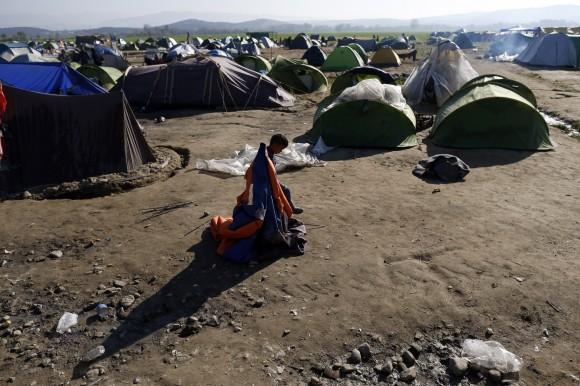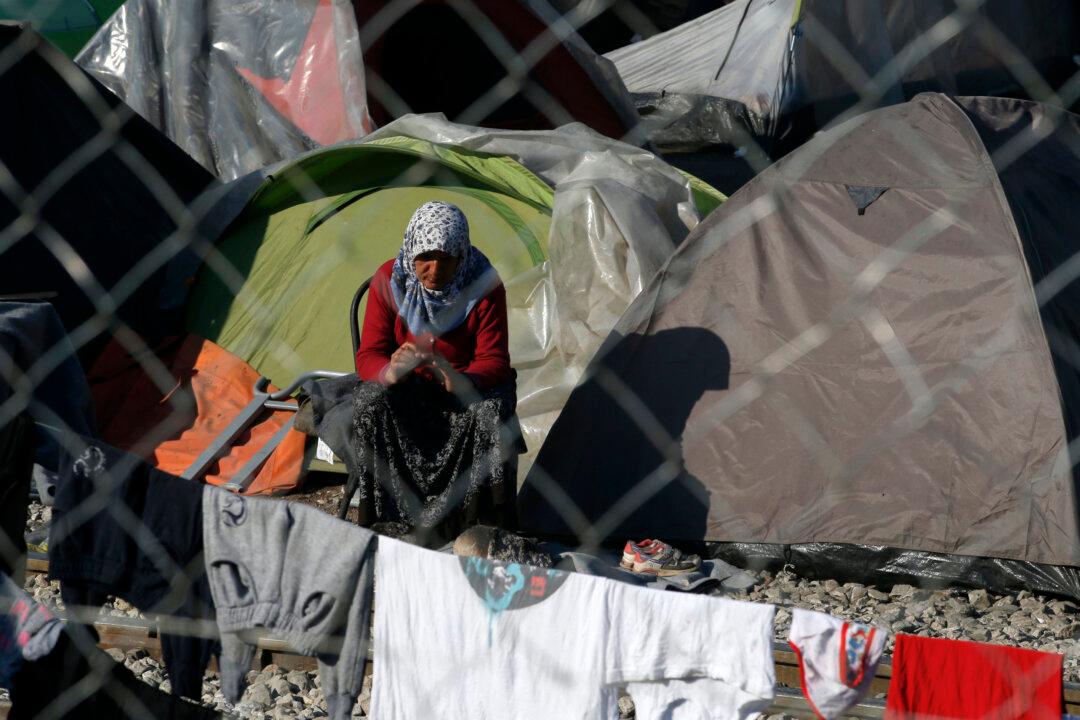IDOMENI, Greece—Through the coils of razor wire and a fence that stretches across green fields, the gathered people can see what has become a forbidden land — Macedonia and its still-snow-capped mountains, the route they had hoped to take on their journey northward through the Balkans to the more prosperous heartland of Europe.
The gate in the fence has been sealed for nearly a month to the thousands of refugees and other migrants whose desperate dash across the continent left Europe scrambling for a coherent response to its largest refugee crisis since World War II. The decision that eventually came was to close the western Balkan route, stranding more than 51,000 people in Greece, the vast majority of them war refugees.
Despite the closure, more than 11,000 remain in what was once a transit camp near the village of Idomeni on the Greek-Macedonian border. The camp has long since overflowed, with men, women and children enduring deplorable conditions in howling winds and pouring rain for days and weeks.
While hundreds have boarded buses heading to other, more organized camps that Greek authorities have been frantically setting up across the country, many insist they will not leave. They still hope against hope — and against all indications — that Europe will relent and reopen the borders.






